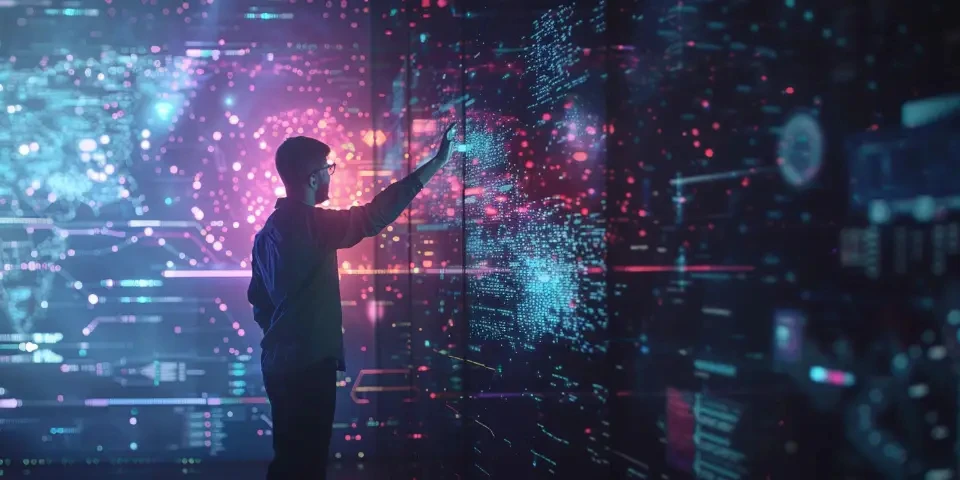From Manual to Automatic How AI is Simplifying Tasks for Users
In recent years, artificial intelligence (AI) has revolutionized the way we live and work. It has emerged as a powerful tool to automate and simplify various tasks that were once manual and time-consuming. From personal assistants to automated data analysis, AI is reshaping the way we interact with technology. In this article, we will explore how AI is simplifying tasks for users across different domains.
1. Virtual Personal Assistants
One of the most prominent AI applications is virtual personal assistants like Siri, Alexa, and Google Assistant. These intelligent assistants use natural language processing and machine learning algorithms to understand and respond to user queries. From setting reminders and playing music to controlling smart home devices, virtual personal assistants have made our lives easier by automating everyday tasks.

2. Automating Customer Support
AI-powered chatbots are transforming customer support by automating responses to frequently asked questions. These bots can analyze and understand customer queries, provide relevant information, and even escalate complex issues to human agents. With AI, customer support has become faster and more efficient, reducing wait times and improving customer satisfaction.
3. Streamlining Data Analysis
AI algorithms are increasingly being used to analyze and interpret large volumes of data. With machine learning techniques, AI systems can identify patterns and trends in data, making data analysis faster and more accurate. This helps businesses in making data-driven decisions and gaining valuable insights from their data.
4. Enhancing Cybersecurity
AI is playing a crucial role in enhancing cybersecurity by automating threat detection and response. AI algorithms can analyze network traffic, identify suspicious patterns, and quickly respond to potential threats. This proactive approach helps in preventing cyberattacks and safeguarding sensitive information.
5. Improved Healthcare Diagnosis
In the field of healthcare, AI is simplifying the process of diagnosis. Machine learning algorithms can analyze patient data and medical records to identify potential diseases or conditions. This allows healthcare professionals to make more accurate diagnoses and provide tailored treatment plans.
6. Smart Home Automation
AI-powered smart home systems are automating various tasks within homes. These systems can control lighting, temperature, security, and entertainment devices based on user preferences and behavior patterns. They offer convenience and energy savings by adjusting the settings automatically.
7. Virtual Travel Assistants
Virtual travel assistants, powered by AI, are simplifying the travel planning process. They can suggest travel destinations, book flights and accommodations, and provide real-time recommendations based on user preferences. These assistants save time and effort by eliminating the need for manual research and comparison.
8. Machine Translation
AI-driven machine translation technologies are simplifying communication across language barriers. These tools can automatically translate text or speech from one language to another, making it easier for people to communicate globally. While not perfect, they continue to improve and bridge the language gap.
9. Automating Document Processing
AI systems are streamlining document processing tasks such as data entry, classification, and extraction. By using optical character recognition (OCR) and machine learning, these systems can automatically extract information from documents, reducing manual effort and improving accuracy.
10. Personalized Recommendations
AI-powered recommendation engines analyze user preferences and behaviors to provide personalized recommendations. Whether it's suggesting movies, books, or products, AI algorithms can understand user preferences and offer tailored suggestions, simplifying the decision-making process.
11. Autonomous Vehicles
AI is driving the development of autonomous vehicles, which aim to simplify transportation. These vehicles use sensors, cameras, and AI algorithms to navigate and make driving decisions. By automating the driving process, autonomous vehicles have the potential to enhance road safety and reduce traffic congestion.
12. Natural Language Processing
Natural Language Processing (NLP) enables AI systems to understand and respond to human language. It simplifies interactions with technology by allowing users to communicate naturally, whether through voice commands or written text. NLP powers many AI applications, including voice assistants and chatbots.
13. Financial Fraud Detection
AI algorithms are capable of detecting patterns and anomalies in financial transactions, making fraud detection more efficient. By analyzing vast amounts of data and identifying suspicious activities, AI helps financial institutions in preventing fraudulent transactions and protecting their customers.
14. Agricultural Automation
AI-powered agricultural systems automate various farming tasks, improving productivity and efficiency. From automated irrigation systems to crop monitoring drones, AI is revolutionizing the way farmers manage their crops, leading to better yields and reduced labor costs.
15. Gaming and Entertainment
AI has a significant impact on the gaming and entertainment industry. AI opponents in games can adapt and learn from player behavior, providing a more challenging and engaging experience. Additionally, AI algorithms can analyze user preferences to suggest personalized music, movies, or TV shows.
FAQs:
1. Will AI replace human jobs?
No, AI will not completely replace human jobs. While AI can automate certain tasks, it also creates new opportunities and roles that require human involvement, such as AI system development, monitoring, and decision-making.
2. Is AI safe and secure?
AI systems are built with safety and security measures in mind. However, like any technology, there may be vulnerabilities and risks. It's essential to implement proper safeguards and regularly update AI systems to ensure their safety and security.
3. Can AI make mistakes?
Yes, AI systems can make mistakes. AI algorithms are designed to learn and improve from data, but they can still encounter errors or make incorrect predictions. Continuous monitoring and human oversight are necessary to mitigate these risks.
References:
1. Smith, J. R. (2021). Artificial Intelligence in Healthcare: A Comprehensive Overview. AI & Ethics, 1-21.
2. Amodei, D., & Hernandez, D. (2018). AI and Compute. arXiv preprint arXiv:1801.06434.
3. Silver, D., Huang, A., Maddison, C. J., Guez, A., Sifre, L., Van Den Driessche, G., ... & Dieleman, S. (2016). Mastering the game of Go with deep neural networks and tree search. Nature, 529(7587), 484-489.
Explore your companion in WeMate